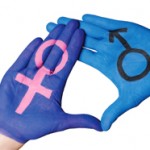(Reuters Health)—Male scientists are more likely than their female counterparts to use superlatives, such as first or novel, to describe their work, a new study suggests, and this disparity might contribute to other professional gender gaps, the authors say.
The study team analyzed the language used in more than 6 million papers in peer-reviewed medical and scientific journals to see how often the findings were described, with any of 25 words that have positive connotations, such as excellent, unique, promising and remarkable.
Papers with male lead authors were up to 21% more likely than those with female lead authors to use positive framing—language that casts the findings as highly significant—in titles and abstracts, the analysis found.
And papers that used positive framing had up to 13% more citations by other scientists than papers without this language.
“[Because] citations are a key determinant in hiring and promotion decisions, gender differences in language use may have tangible career implications,” says lead study author Marc Lerchenmueller of the University of Mannheim in Germany.
“Women’s work may receive less attention and recognition as a result of them using more timid language,” Dr. Lerchenmueller says by email. “Framing may influence what research gets noticed and what science may ultimately inform patient care.”
Women in academic medicine and life sciences tend to receive fewer promotions, earn lower salaries, and receive fewer research grants than their male counterparts, the study team notes in The BMJ.1
Although the analysis wasn’t designed to prove whether or how the wording of research papers may impact scientists’ career trajectories over time, it’s possible that using more muted language holds women back, the study team notes.
To account for changes in language over time and different approaches at different journals, researchers compared papers in the same publication, and from the same year with one another, and the results held up.
They also compared papers with similar approaches to investigating similar topics—such as clinical trials for cancer treatments—to account for differences in describing different types of research.
One limitation of the study is that Dr. Lerchenmueller’s team was unable to objectively determine the scientific merits of the studies in their analysis, making it unclear whether men produced more novel work than women or if men set a lower bar for declaring their work unique.
Social norms may play a role, says Rosemary Morgan, PhD, of the Johns Hopkins Bloomberg School of Public Health, Baltimore.


